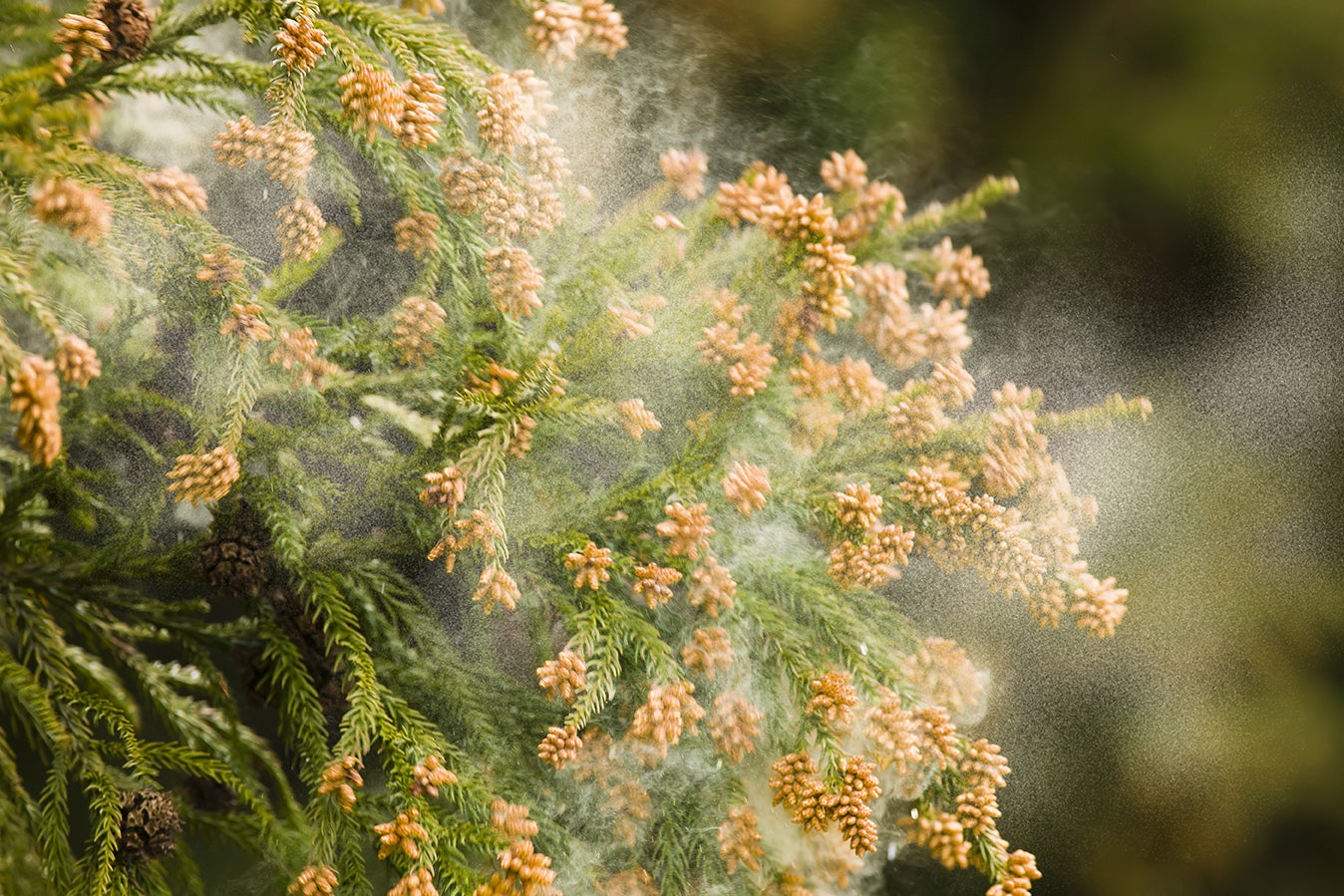Allergies? Asthma? COVID? Breathe easy! Here are ways to support your lung health.
May 5, 2023Categories: Pulmonology, News & Media, Health & Wellness, Blog
 As we pull ourselves out of winter hibernation, it’s beautiful to see the trees blooming, flowers blossoming and fresh grass growing. For many, it feels great to get outside and breathe in the fresh, cool spring air—unless you have seasonal allergies or asthma. According to the Asthma and Allergy Foundation of America (AAFA), more than 81 million people in the United States were diagnosed with seasonal allergies in 2021. Symptoms are usually mild and can include:
As we pull ourselves out of winter hibernation, it’s beautiful to see the trees blooming, flowers blossoming and fresh grass growing. For many, it feels great to get outside and breathe in the fresh, cool spring air—unless you have seasonal allergies or asthma. According to the Asthma and Allergy Foundation of America (AAFA), more than 81 million people in the United States were diagnosed with seasonal allergies in 2021. Symptoms are usually mild and can include:
- Congestion
- Sneezing
- Itchy eyes, nose and throat
- Clear runny nose
- Postnasal drip (drainage in the throat)
- Coughing
Allergies and Asthma
When you have an allergy, it occurs because the body reacts to something benign, like pollen, as though it were an enemy. While the immune system fights off the perceived threat, a chemical called histamine is released, which causes the allergic reactions in the eyes, nose, throat, skin and lungs. When those reactions hit the lungs, it can cause coughing, wheezing and trouble breathing.
For those who also suffer from asthma, seasonal allergies can be a trigger to more breathing problems. At Garnet Health Doctors, our pulmonology specialists see many patients at this time of year, as their allergies or asthma (or both) can make it difficult to breathe. Here are some important tips to keep in mind:
- Get a proper diagnosis. A clinical exam can help pinpoint what triggers your allergies and/or asthma, so proper treatment can be given.
- Proper treatment. Once you understand what is causing your symptoms, proper treatment can be prescribed. Medications are available for both allergies and asthma, along with immunotherapy, which helps train the body to handle allergens better. A proper diagnosis can determine if this is an option for you.
- Avoid triggers. That may be much easier said than done, but once you understand what causes your symptoms, working to avoid them can help limit exposure. The AAFA has a healthy home checklist that can help you identify and reduce triggers inside your home. Allergy testing can help determine what triggers your reaction.
- Have an asthma action plan. Your doctor can work with you to make sure you have an asthma action plan that ensures everyone knows how your asthma—or your family member’s—should be treated.
Other Breathing Problems
Sometimes our breathing troubles are not related to allergies or asthma. Witnessing someone with breathing trouble can be scary, and if it occurs, you need to get to an emergency department or call 9-1-1 right away. At Garnet Health Doctors, our pulmonologists see and treat a variety of lung-related problems, from mild cases of allergies to very serious lung diseases. A doctor can evaluate you when you are experiencing breathing issues, diagnose potentially serious conditions and have them treated faster for better outcomes. Pulmonologists can also provide you with medicine and resources to be used in case of emergency, decreasing the need for emergency department or urgent care visits.
If you are dealing with a chronic cough, shortness of breath or disrupted sleep, or if you want help to quit smoking, make an appointment with a pulmonologist right away. Here are some conditions that can cause breathing issues:
- COPD (chronic obstructive pulmonary disease)
- Lung infections and pneumonia
- Lung cancer
- Environmentally triggered lung diseases
- Long-COVID symptoms
- Pulmonary hypertension—a serious condition where there is very high pressure in the blood vessels between the lungs and heart.
- Sarcoidosis—a rare disease that causes clumps of inflamed tissue to form in different part of the body, including the lungs.
To make an appointment with a Garnet Health Doctors pulmonology specialist in Harris, New York, call (845) 333-8909, and in Middletown, New York, call (845) 333-7575.
Is It Allergies or COVID?
You’ve likely heard that the new strain of COVID, called Arcturus, has a new symptom, conjunctivitis, also known as pink eye. This can make it even harder to tell if you are experiencing allergies or COVID. While symptoms like coughing, itchy eyes (with this new COVID strain) and congestion can overlap, here are symptoms that are common with COVID and other viruses but happen rarely, if at all, with allergies:
- Fever
- Fatigue
- Headache
- Sore throat
- Shortness of breath (unless you have allergy-induced asthma)
The best way to truly know if it’s allergies or COVID is to take a COVID test.
